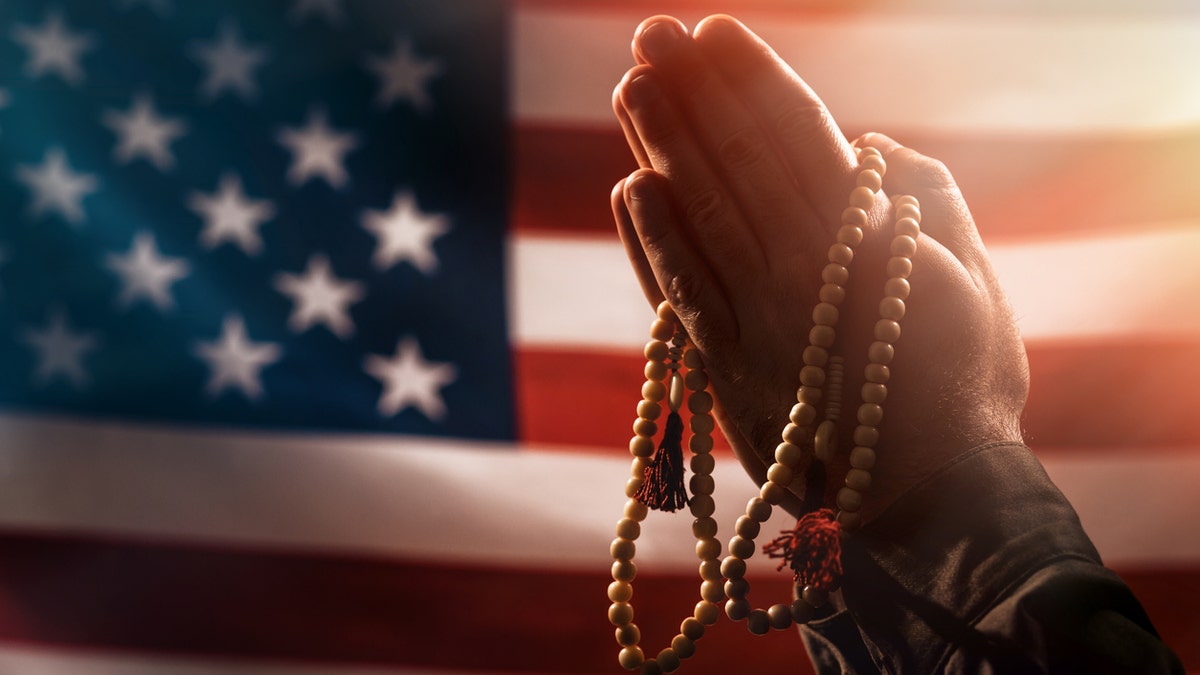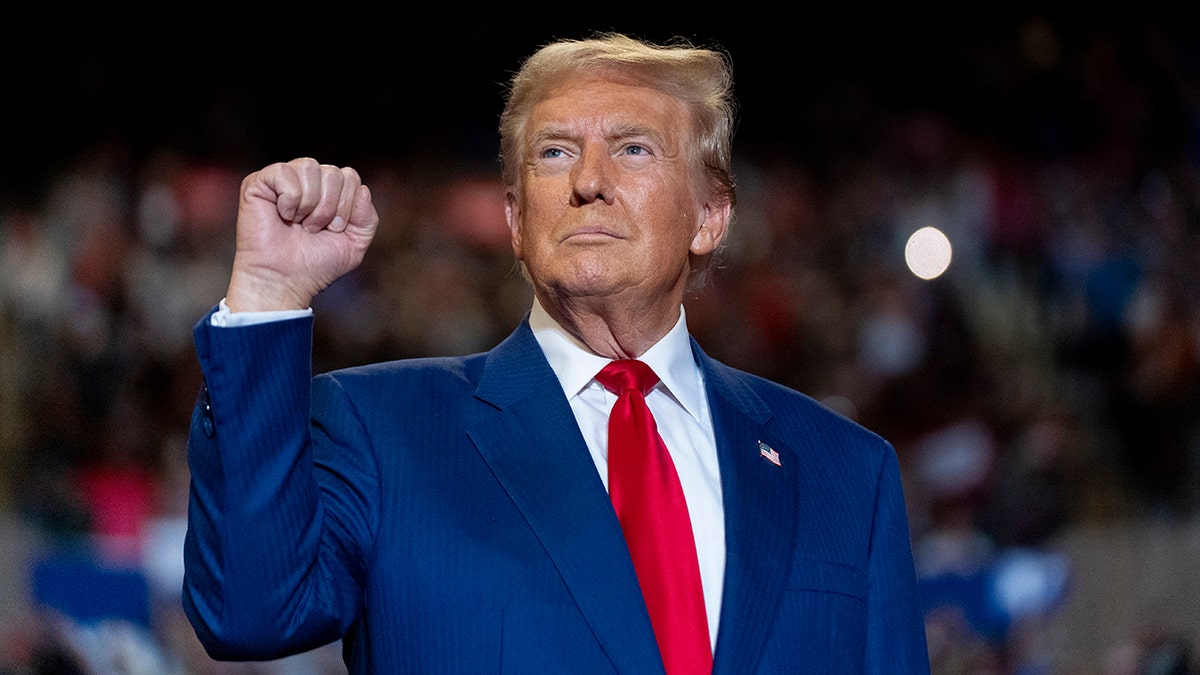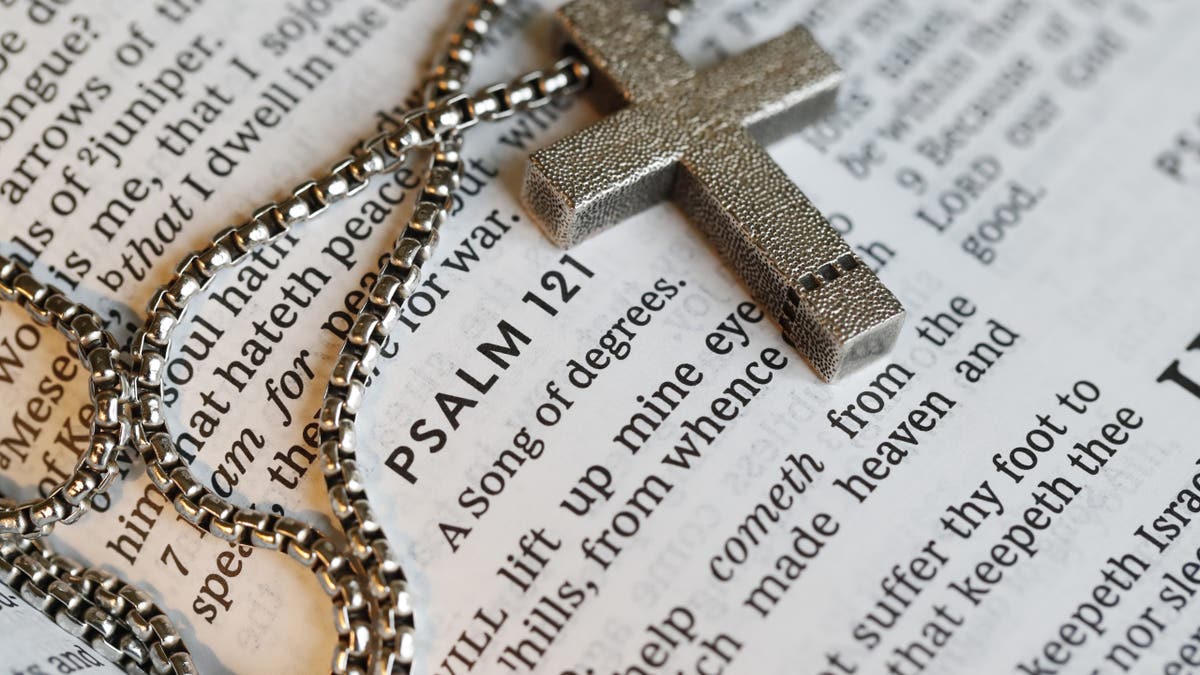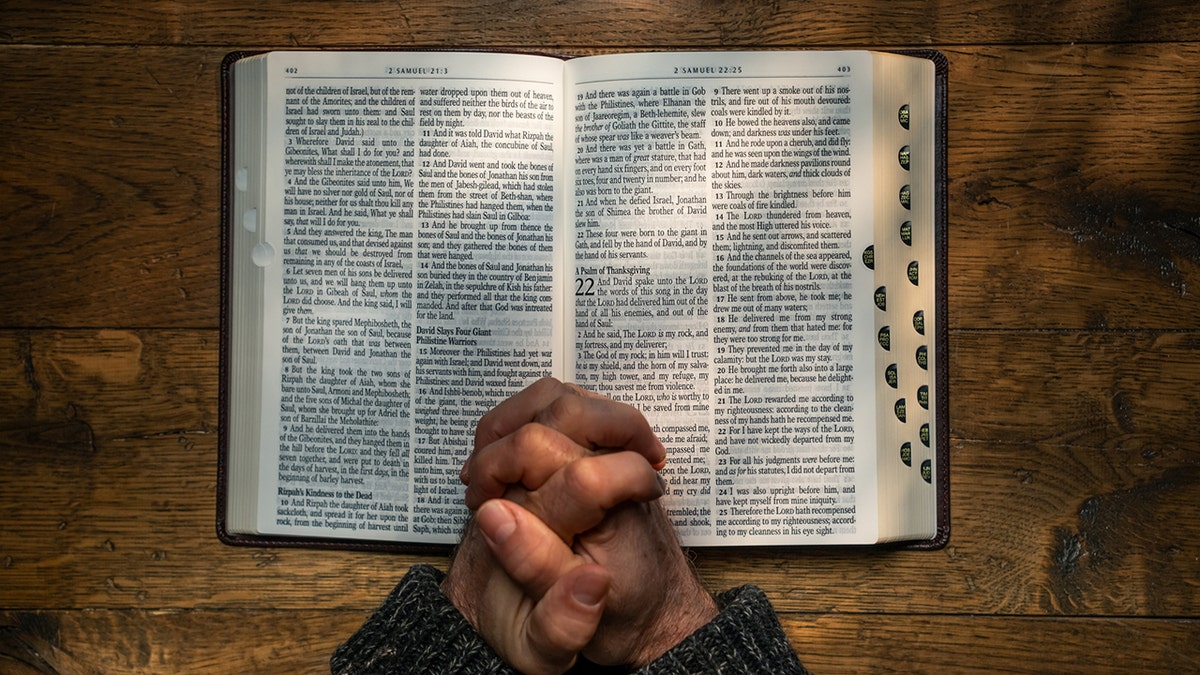President-elect Donald J. Trump’s victory is more than a decisive win for Republicans. It’s a referendum on the importance of the religious voter.
The path to the White House still runs through America’s pews, as one journalist intimated recently in Christianity Today.
Trump increased his share of Catholic, evangelical and even Jewish voters. The Catholic vote especially saw a marked gain in support of Trump over 2020.
AMERICA’S COMBAT CHAPLAINS OF ‘ALL FAITHS’ ARE THE FOCUS OF NEW FILM
The election was also about competing worldviews.
Dr. Alex McFarland, a North Carolina-based religion and culture expert, spoke on the “Lighthouse Faith” podcast recently and laid out the difference: It was “a constitutional worldview that presupposes objective morality, which has been kind of the glue that held our nation together for 248 years, versus a globalist woke worldview that assumes morals are fluid, even assumes gender is fluid,” he said.
As Democrats ponder what the party may or may have done wrong in 2024 — including on the economy, the border crisis, abortion — McFarland said there was the hum of a more conservative biblical worldview working its way through America’s pews that found its way to the ballot box.
McFarland said, “We believe that truth is not something that we make up for ourselves. Truth is revealed by God. The moral guardrails that hold our society together are not anything contrived by humans, but given by God.”
Religious freedom is a bedrock principle of the United States, enshrined in the Constitution.
In other words, it’s the classic Enlightenment-era conflict over whether Man is the measure of all things — or is God?
He added, “Like opinions, everybody’s got a worldview, even if it’s only implied. The dictionary definition of a worldview is that it’s ‘a collection of attitudes, values, stories and expectations about the world around us, which inform our every thought and action. Worldview is expressed in ethics, religion, philosophy, scientific beliefs and so on.'”
Also, it’s “a comprehensive conception or philosophy of the universe and of humanity’s relation to it.”
HUMANITY CALLED TO ‘COMPLETE,’ NOT ‘COMPETE’ WITH EACH OTHER, SAYS VIRGINIA PASTOR
Religious freedom is a bedrock principle of the United States, enshrined in the Constitution. Religion (or belief systems) informs and fuels worldviews.
But McFarland, expressing a personal view, said the Harris campaign seemed to him to trample or dismiss biblical worldviews. The dictionary definition of a worldview is that it’s ‘a collection of attitudes, values, stories and expectations about the world around us, which inform our every thought and action. Worldview is expressed in ethics, religion, philosophy, scientific beliefs and so on.'”

As one example, when some attendees of a Wisconsin rally shouted, “Jesus is King,” she replied, “You’re at the wrong rally” — and laughed.
Yet when Trump’s running mate, Vice president-elect JD Vance, encountered the same shouts at an event, he answered, “That’s right, Jesus is King.”
Also, Harris declined the invite given to both presidential candidates to attend the 79th annual Al Smith Dinner, which raises millions for Catholic charities. Trump was there.
The Catholic League’s Bill Donohue viewed it as a snub to Catholics on a global scale.
McFarland quoted Trump as saying, “Let’s talk about the things that last forever. The things that unite us. God. Family. Freedom.”
In addition, Harris targeted faith-based pregnancy centers and promoted extreme views on abortion, even saying in an interview that as president she would not make any concessions for religious objections to abortion.
Even so, a week before Election Day, more than 1,000 religious leaders that Sunday endorsed her as part of the “Souls for the Polls.” It was seen as a move to show how faith was present in her campaign and to counter the mounting attacks from conservatives saying she was anti-Catholic and anti-Christian.

One of the endorsees, her longtime spiritual mentor, the Rev. Amos C. Brown III of San Francisco’s Third Baptist Church, said Harris would oppose the “dangerous politics” that Trump and “the MAGA movement have unleashed … and this potential for American fasicsm.”
William Wolf, in an op-ed in The Christian Post, wrote, “We’re witnessing a political parallel, with the incessant cries of ‘fascism’ coming from the left and their echo chambers in the mainstream media.”
THE BIBLE MAKES CLEAR WHO WILL WIN TODAY’S BATTLES, SAYS JONATHAN CAHN, BESTSELLING AUTHOR
Wolfe served as a senior official in the Trump administration. He said, “Fascism, actual fascism, is characterized by dictatorial power, forcible suppression of political opposition and strong regimentation of society and the economy.”
He also pointed out, “When universities, once the bastions of free thought, become echo chambers where only one set of ideas can be safely expressed, we’re not just flirting with incipient fascism — we’re setting the table for it.”
The term “Christian nationalism” also made its way into the mainstream media as a way to strike fear in liberals.

Historian William Federer said, “Christian nationalism used to be called Christian patriotism … The current usage of the term Christian nationalism started in 2006. It was a political slur. Prior to that,” Federer added, “the references [were to] Christian patriotism and every president favored it.”
Federer said that Abraham Lincoln, in his inaugural address, said that “intelligence, patriotism, Christianity are still competent to adjust in the best way [to] all our present difficulty.”
Franklin Delano Roosevelt, for his part, passed out Gideon’s New Testament and the Book of Psalms to all the soldiers in World War II. Said Federer, “I wonder if the mainstream media would call Franklin Roosevelt the Christian nationalist?”
‘Something really important happened’
Regarding Trump and religion, McFarland said he could only speak for himself.
Back in the spring of 2016, McFarland was invited with about 100 other prominent clergy to Trump’s office in Manhattan, the same building where Trump descended the elevator to announce his candidacy in 2015, he said.
‘CHIPS’ ACTOR ERIK ESTRADA ON HOW FAITH BUOYS HIS LIFE AND CAREER: ‘IT’S A GOOD THING’
Said McFarland, “I’m in this room and there’s Mike Huckabee and Rev. Franklin Graham and Tim Wildmon [of the American Family Association] … Every major evangelical entity you can think of was in this room. Trump said, ‘Look, if I become president … don’t you worry about the IRS coming after you. Forget the Johnson Amendment. You guys are supposed to tell our nation about right from wrong.’ And everybody was like, ‘Wow, this guy gets it.'”

The Johnson Amendment is a provision in the tax code, since 1954, that essentially prohibits clergy from talking politics in the pews — or risk their non-profit status with the IRS. It’s under fire today, as many religious leaders see it as an infringement on free speech.
After Trump won the election in 2016, he had weekly phone calls with clergy leaders.
In the spring of 2020, McFarland joined the call on Good Friday.
McFarland related, “He goes, ‘Look, no politics today. It’s Good Friday.’ He also says, ‘You guys are the theologians. I don’t need to tell you, but 2,000 years ago, something really important happened. Christ died for our sins.'”
COLORADO FAITH LEADER USES BIBLE VERSES AS ‘CLARION CALL’ TO EXAMINE ‘WHY WE FOLLOW CHRIST’
McFarland said Trump proceeded to “read from scripture, from Isaiah the prophet … then asked Rev. Franklin Graham to pray.”
McFarland added that Trump then said, “Let’s talk about the things that last forever. The things that unite us. God. Family. Freedom. And let’s just let’s just appreciate how blessed we are.”
“A person to be loved is always more important than an argument to be won.”
Historian and bestselling author Oz Guiness saw the proverbial writing on the wall years ago in his book “The Magna Carta of Humanity: Sinai’s Revolutionary Faith and The Future of Freedom” — that America is at a crossroads in how it defines freedom, whether it’s from the perspective of the American Revolution or from the heirs of the French Revolution.
“Americans don’t realize,” he wrote, “that the distinct voice of the American Revolution largely comes from the Bible and the Book of Exodus and Deuteronomy.”

On an episode of the “Lighthouse Faith” podcast, Guiness said, “Ideas like postmodernism, radical multiculturalism, the sexual revolution, cancel culture, critical race theory, all that stuff — all of those come down from the French Revolution, not the American Revolution. And so you’ve got a deep division about what the country stands for … And it must be resolved.”
Guinness said the warning came years ago from President Abraham Lincoln just before the Civil War. In 1858, he quoted Jesus as saying, “A house divided against itself cannot stand” — meaning America couldn’t be half slave and half free.
“And what I’m arguing, in effect, is America cannot be half 1776 and half 1789. The two revolutions go in different directions.”
It boils down to this, said McFarland: “Do people think of God or religion as something that they serve — or something that serves them? In political terms, does a biblical worldview inform your politics — or do your politics inform your biblical worldview?”
There are millions of Americans who are convinced Donald Trump is the wrong choice for the White House — but that doesn’t change his status as the president-elect.
For more Lifestyle articles, visit www.foxnews.com/lifestyle
He won both the electoral and popular vote and will serve as America’s 47th president.
As the holidays approach, these are the two competing worldviews that will be the proverbial elephant in the room as people gather for Thanksgiving, Christmas and special holiday events.
McFarland shared words of wisdom ahead of what could be a contentious season for many people.
“Politics [is] transient and temporary,” he said. “Family, loved ones, my next-door neighbor, relationships — those things are lasting.”
He added, “Remember this: A person to be loved is always more important than an argument to be won.”
Read the full article here









